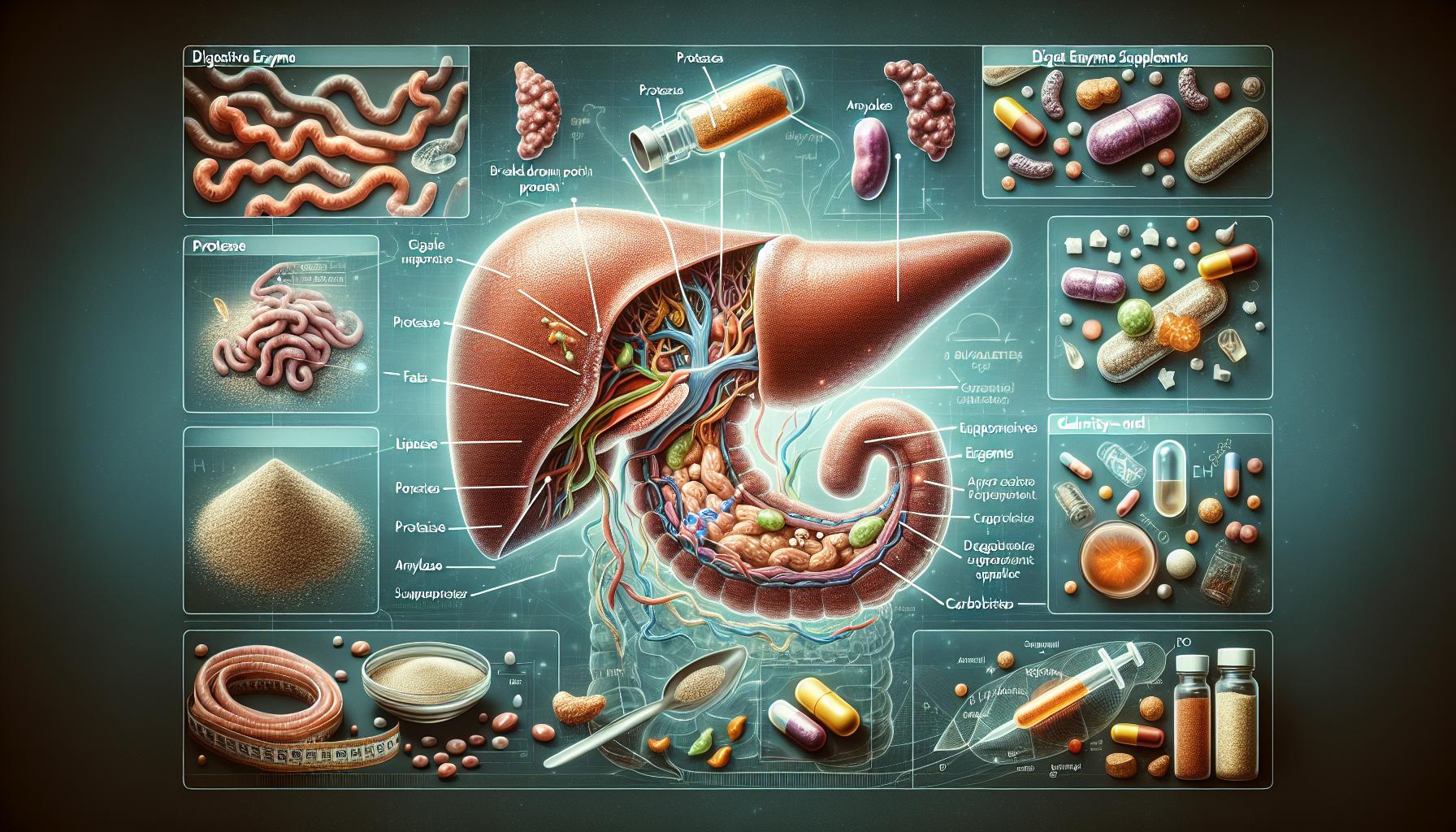
Introduction – Unveiling the Silent Function of Your Pancreas
Have you ever wondered what digestive enzymes does the pancreas produce? The answer is a trifecta – protease, amylase, and lipase. These critical enzymes are the secret foot soldiers of our digestive system, breaking down proteins, carbohydrates, and fats respectively. This article delves deeper into the microscopic world of these enzymes and further explores the pivotal role of the pancreas in your digestion.
Your Pancreas: A Functional Portrait
Hidden behind the bustling hub of your stomach and the small intestine is your pancreas, playing the silent and dutiful role of a chemist in your body. Located in the upper abdomen, the pancreas is your body’s warehouse for digestive enzymes. These enzymes breathe life into the process of digestion, breaking down the food we eat into microscopic nutrients that can be absorbed easily.
The Enzymes: Your Digestion’s Secret Agents
The ‘tried-and-true’ enzymes that are protease, amylase, and lipase are the stars of this process. Tasked with breaking down complex molecules into simpler forms for easy absorption by your body, these enzymes are like those hardcore math teachers tirelessly trying to simplify tricky algebraic equations.
Protease: The Protein Extractor
Let’s crack this open with protease, the enzyme that acts as an usher, guiding proteins on the red carpet to absorption. Just think of protease like a master chef, skillfully slicing and dicing protein structure into simple amino acids, making them ready for easy absorption.
Amylase: The Carbohydrate Conqueror
Next on our list is amylase, breaking down carbohydrates like a hot knife through butter. By transforming complex carbs into simple sugars, amylase ensures that your body gets its energy needs fulfilled, and in turn, keeps you moving and grooving through the day.
Lipase: The Fat Fanatic
Lastly, but no less crucially, put your hands together for lipase, the enzyme that ensures fats don’t get a free ride through your digestive tract. Akin to a seasoned bartender expertly mixing cocktails, lipase meticulously breaks down fats into fatty acids and glycerol, both of which are welcome guests in your body’s biochemical party.
The Pancreatic Orchestra
With each of these enzymes playing a distinctive note, your pancreas becomes the grand orchestrator of this intricate symphony, balancing each player’s role and ensuring your meal’s nutrients are fully absorbed, like a well-versed conductor ensuring every instrument hits the right note in a chorus.
Conclusion – A Tribute to Your Pancreatic Army
So, what digestive enzymes does your pancreas produce? A noteworthy trio – protease, amylase, and lipase. Their harmony ensures the smooth functioning of your digestive system. Understanding the role they play, it’s safe to say your pancreas is not just another organ but a vital chemical hub in your body. So the next time you enjoy a meal, remember to pay silent tribute to your pancreatic army.
Frequently Asked Questions
1. What happens if pancreatic enzymes are low? If your body produces low levels of pancreatic enzymes, you may suffer from malabsorption issues. This might lead to nutrient deficiencies and digestive discomfort.
2. Are pancreatic enzymes essential in the digestion process? Absolutely! These enzymes, produced by the pancreas, play a key role in food digestion, breaking down macromolecules into their simpler forms for absorption.
3. Can pancreatic enzyme levels be increased naturally? Consuming a balanced, nutrient-rich diet and maintaining a healthy lifestyle can support pancreatic health and potentially improve enzyme production.
4. What symptoms might indicate an issue with my pancreas? Symptoms might include abdominal pain, nausea, diarrhea, and unexplained weight loss. Nevertheless, consulting with a healthcare professional is essential if you experience these symptoms.
5. How do medications that contain pancreatic enzymes help with digestion? These medications work by replacing or increasing the enzymes made by your pancreas, assisting with the proper breakdown and absorption of foods, particularly in those with conditions like pancreatitis or cystic fibrosis.

